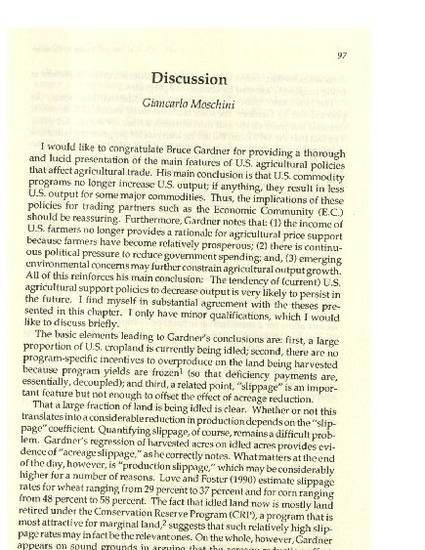
I would like to congratulate Bruce Gardner for providing a thorough and lucid presentation of the main features of U.S. agricultural policies that affect agricultural trade. His main conclusion is that U.S. commodity programs no longer increase U.S. output; if anything, they result in less U.S. output for some major commodities. Thus, the implications of these policies for trading partners such as the Economic Community (E.C.) should be reassuring. Furthermore, Gardner notes that: (1) the income of U.S. farmers no longer provides a rationale for agricultural price support because farmers have become relatively prosperous; (2) there is continuous political pressure to reduce government spending; and, (3) emerging environmental concerns may further constrain agricultural output growth. All of this reinforces his main conclusion: The tendency of (current) U.S. agricultural support policies to decrease output is very likely to persist in the future. I find myself in substantial agreement with the theses pre sented in this chapter. I only have minor qualifications, which I would like to discuss briefly.
Available at: http://works.bepress.com/giancarlo-moschini/86/

This is a discussion of "U.S. Domestic Policy and U.S.-E.C. Trade" from Agricultural Trade Conflicts and GATT: New Dimensions in U.S.-European Agricultural Trade Relations (1994): 97. Posted with permission.